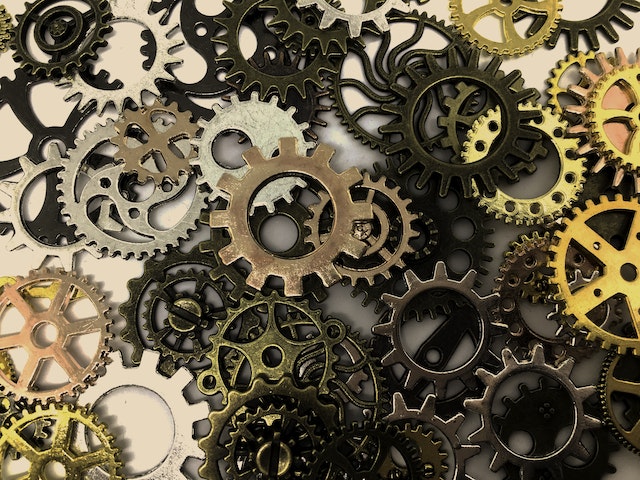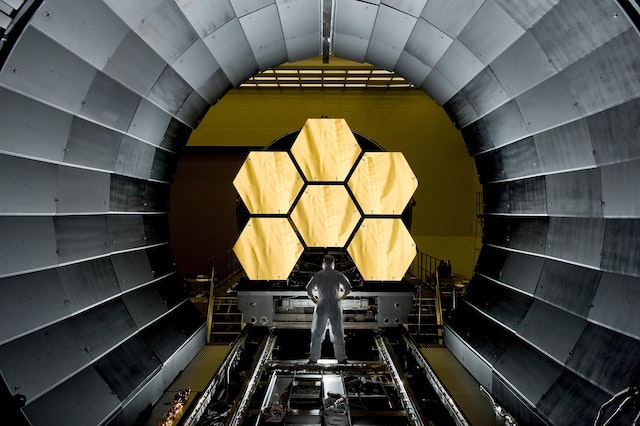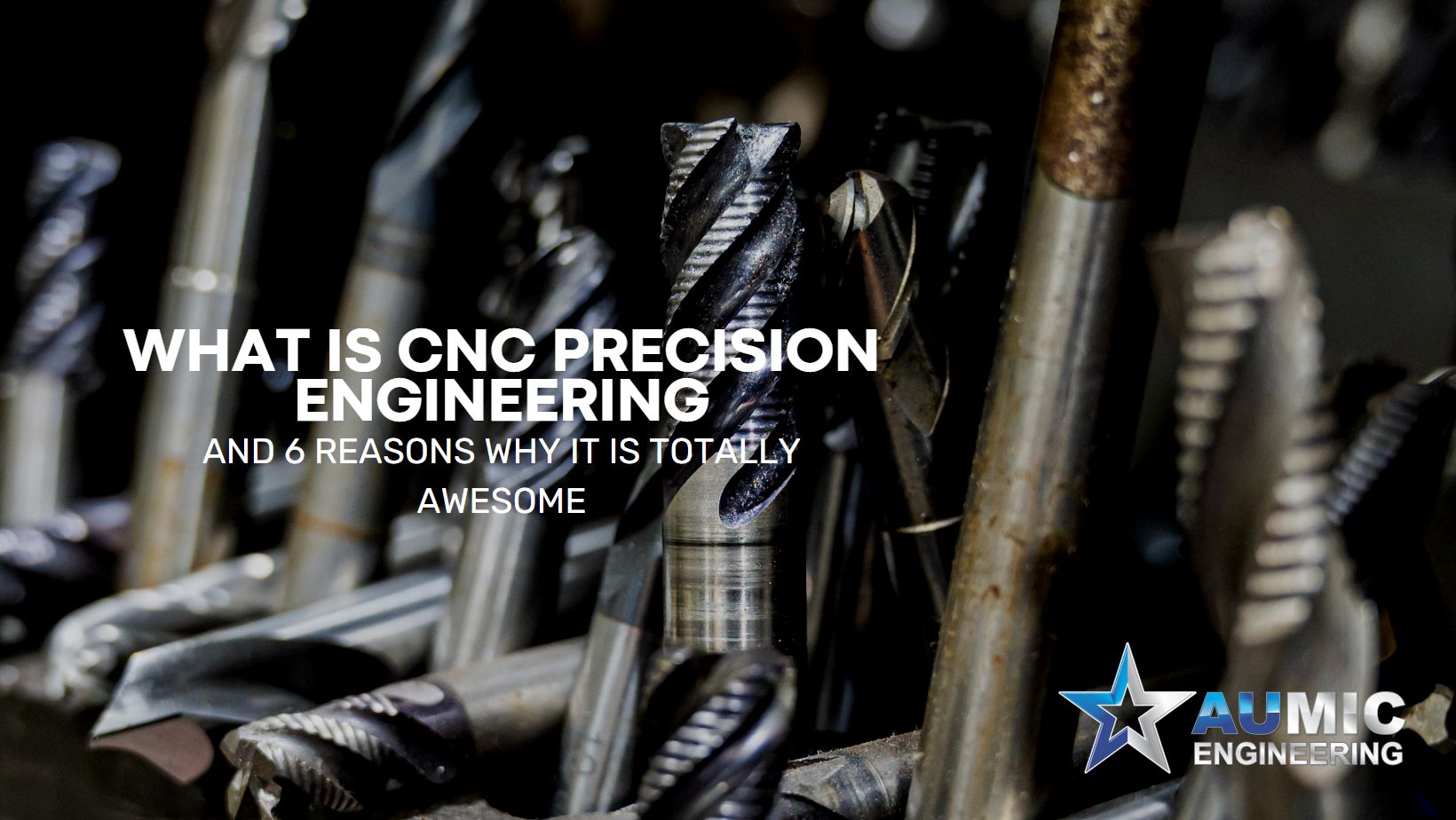What is CNC precision engineering and why is it so amazing for manufacturers and businesses?
CNC stands for Computer Numerical Control (CNC) and it is a type of manufacturing technology that uses computers to control the precise movement of machine tools.
The main purpose of CNC machining is to enhance the speed, accuracy, and repeatability of production processes. Precision Engineering at Aumic Engineering uses numerical control systems to accurately cut or shape components from the raw material into finished parts with great speed and accuracy. It consists of programming software for machining operations, cutting tools, and machine tool components.
What is CNC precision engineering? It is the process of using computer-aided machines to cut or shape materials into precise shapes with great accuracy and speed. This type of machining allows manufacturers to create a wide range of intricate parts that would be impossible to produce using manual methods.
What is CNC precision engineering effective at creating and what is to know about it? Keep reading to find out.
What Is CNC Precision Engineering And Six Reasons It Is Essential For Manufacturing
1) Save Costs
What is CNC precision engineering effective at doing? CNC machining enables manufacturers to save on costs by eliminating manual processes as well as allowing for higher production volumes when compared with traditional manufacturing techniques. It also eliminates labour costs associated with reworking parts that are not precise enough.
CNC precision engineering is what takes this to the next level, allowing for extremely accurate and precise parts. With traditional machining methods, it can be difficult to achieve the exact measurements that are required by certain industries such as aerospace, medical or automotive manufacturing.
CNC precision engineering is what makes these high-precision parts possible. Through the use of advanced computer-aided design (CAD) software and sophisticated equipment like 3D printers, manufacturers are able to create parts with incredibly tight tolerances, eliminating waste and improving overall quality.
CNC precision engineering is what allows us to push the boundaries of what can be achieved through manufacturing processes. With its use, we are able to create components that are more efficient and reliable than ever before.

2) Precision And Accuracy
What is CNC precision engineering along with its effect on parts? It produces parts with high precision and accuracy to tight tolerances, which is extremely important in many industries, such as aerospace and medicine where exact measurements are critical.
CNC precision engineering is the process of using Computer Numerical Control (CNC) machines, which are computer-controlled tools to perform complex operations like drilling, milling, and turning on a variety of materials.
By programming the machine with a set of instructions, users can create precision parts with incredible accuracy and tight tolerances. The use of CNC technology enables engineers to work quickly with less waste and fewer errors than what could be achieved by manual machining processes.
This means that components made with CNC technology need less time for installation and assembly, as well as cost savings in finished product quality assurance. Additionally, this type of engineering can provide reduced lead times and help meet aggressive project deadlines.

3) Reduce Wastage
What is CNC precision engineering and how does it help reduces waste materials? It does this due to its superior cutting accuracy. This means less material needs to be used in the production process, resulting in cost savings on raw materials.
CNC machining also enables the production of components with complex shapes and geometries. This allows for more intricate designs and less post-production work, as parts need minimal or no further finishing.
Additionally, CNC precision engineering is highly efficient which leads to shorter lead times and faster turnaround times.
All these factors make it a preferred option when producing complex components quickly, accurately, and cost-effectively.
CNC precision engineering can be used to produce components in different materials such as metals, plastic, ceramics, and composites.
It is a versatile process that can be used for many applications including automotive, aerospace, and medical industries.

4) More Versatility
What is CNC precision engineering in terms of versatility?
This is a huge advantage of CNC engineering because it allows manufacturers to quickly switch from one product design to another without having to retool their machines or manually reset parameters every time they need to manufacture a new part.
This flexibility and automation can reduce the time and cost spent on each production run, resulting in increased productivity. What is CNC precision engineering without its high accuracy and consistency levels? Nothing – because you are guaranteed incredible results.
Even small errors are quickly detected and corrected, so the finished product is always of very high quality. By taking advantage of these features, companies can deliver products that meet customer specifications with ease. CNC precision engineering is an invaluable tool for many manufacturers who rely on high-quality components for their operations.
CNC precision engineering provides manufacturers with a wide range of benefits that make it an integral part of any successful production process. It increases reliability by reducing waste.

5) Smooth Automation
What is CNC precision engineering like in large manufacturers and engineers? It is efficient because it can be fully automated, eliminating the need for manual labour and allowing manufacturers to produce parts quickly and efficiently. This type of automation also increases accuracy and reduces production times.
CNC precision engineering means that exact measurements can be achieved, which is essential for the production of accurate and high-quality components. This method of engineering uses computer numerical control (CNC) machines to create parts from a variety of materials using pre-programmed instructions.
The machinery used in this process is capable of producing precise shapes with tight tolerances and repeatable accuracy that other methods may not be able to achieve. By using advanced cutting techniques, intricate designs can be created; however, it is important to have a skilled machinist operating these machines as mistakes can easily occur if the wrong steps are taken or incorrect parameters are inputted into the machine.

6) Quality Assurance
Since CNC machining is highly accurate, it ensures that each part produced has a high-quality finish and meets exact specifications with minimal flaws or errors.
This guarantees consistent quality for every product manufactured and helps ensure customer satisfaction. What is CNC precision engineering and where do we need this type of machinery? This type of machining is often used in the production of medical devices, aerospace components, automotive parts, industrial machinery, and other complex products where accuracy is essential.
The CNC machine processes a set of instructions that directs it to move along three axes—X, Y, and Z—and produce components with great accuracy. By using high-precision cutting tools, these machines can shape materials like metal alloys or plastics into intricate shapes and sizes that are nearly impossible to replicate by hand. The end result is what makes CNC precision engineering so reliable: highly accurate parts with exact measurements.
So What Is CNC Precision Engineering When It Comes To Manufacturing?
Essentially, it is everything and more if you are striving for complete accuracy and precision.
If you are looking for a way to increase efficiency, reduce costs, and guarantee consistent quality in your manufacturing process, then you should certainly think about using CNC precision engineering.
What is CNC precision engineering? If you are still uncertain or want to know how to start using it in your manufacturing business then contact us now and our team will happily assist you.
Read More
Precision Engineering Microfabrication Techniques & 10 Powerful Methods To Boost Accuracy.

